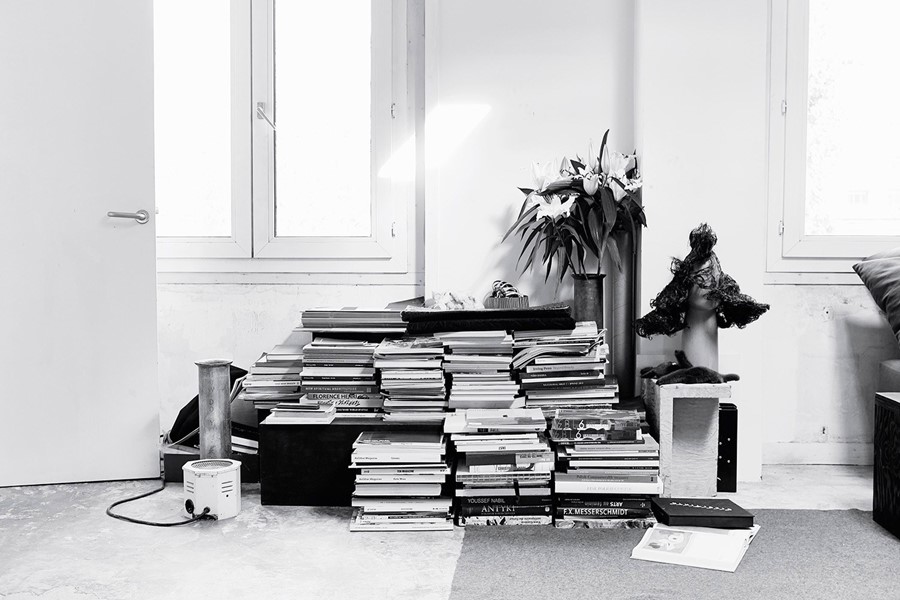Ahead of Rick Owens' S/S17 show, the progressive designer and his partner disclose ten of their most influential texts – from Alice in Wonderland to The Torture Garden
From their meeting in Los Angeles during the late 1980s to the rambling, raw concrete home they now share on the Left Bank, designer Rick Owens and his partner Michèle Lamy have shaped their own, idiosyncratic world. Its fearless, darkly beautiful spirit is echoed in this guest-edit of DOCUMENT, a collection of literary works from the 19th century to the present day that have wired their imaginations. The couple, who have always maintained their individuality while sharing many of the same aesthetic touchstones, have split the pages of Document between them, each choosing five favourite texts from their well-stocked shelves.
Owens begins with fin-de-siècle decadence from JK Huysman’s Against the Grain – its reclusive aesthete Jean des Esseintes is a hero of his – and Octave Mirbeau’s sticky tale of horror, The Torture Garden. Oscar Wilde, another flamboyant defier of convention, joins them with his scandalous and originally banned play, Salomé. There is a flight into heaven with Mathilde Wesendonck’s poem, The Angel – set to music by her alleged lover, Richard Wagner – and a plunge into hell with a grisly 21st-century email exchange that takes the search for extreme sensation to a harrowing conclusion.
Lamy’s selections include the playful surrealism of Lewis Carroll; Henry Miller on a stroll through the sights, sounds and sexual preferences of 1930s Paris; and a glimpse into the pin-sharp mind of Susan Sontag through excerpts from the journal she kept during a languid trip to Tangier in 1965. There is David Foster Wallace’s mordantly funny story of one marriage’s complications in the bedroom, and some jewel-bright words from Langston Hughes in his poem, Sleep. To illustrate, the pair have created a series of images taken in the heart of the Owens/Lamy universe.
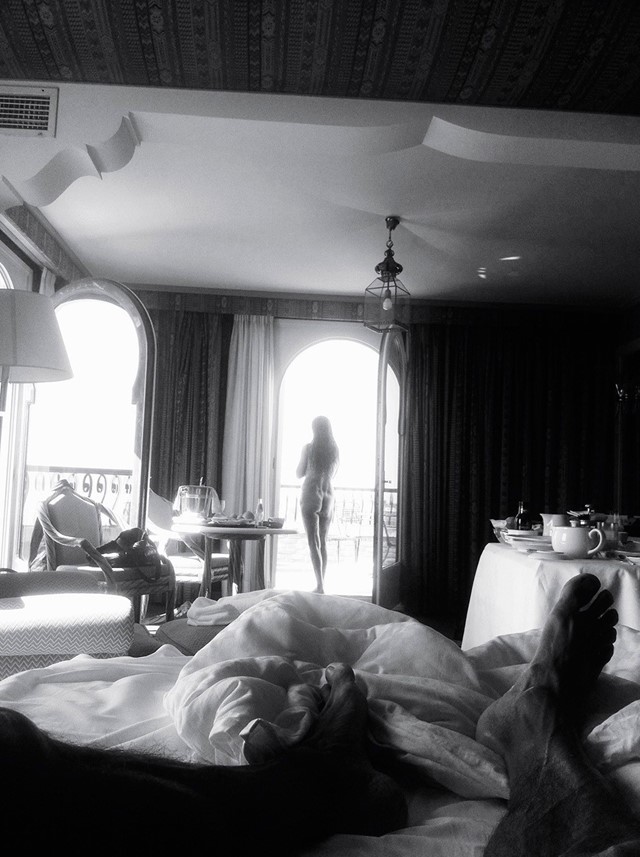
Against the Grain by JK Huysmans
“I don’t really read like I used to – I think that my reading years were about learning and absorbing moods and my recent years are about expressing personal compositions of everything I learned. The reading I did do that stuck with me was usually somewhat breathless and brittle – I suppose camp. But my definition of camp has always been authentic sentiment disguised in artifice… Reading Against the Grain (À Rebours) in my youth led me to believe that complete and solitary devotion to beauty and the senses was going to be the only way to live. I connected with its appealingly unhealthy self-indulgence. Later I learned to share. But just barely.” – Rick Owens
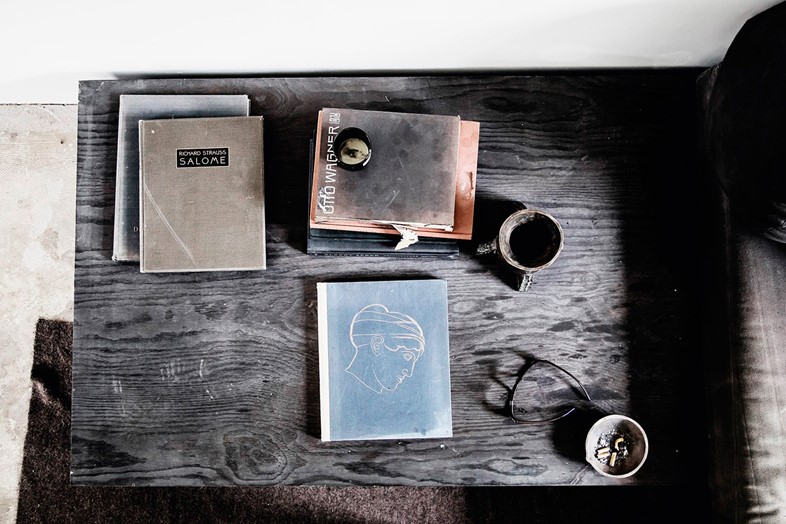
Adult World (I) by David Foster Wallace
“I haven’t lived so long with David Foster Wallace as with my other choices. And I have not laughed or danced with his work as much. He is the Kurt Cobain of literature – not only because they both killed themselves or for the bandana they both often wore on their heads, but I think they do both mark their time. David Foster Wallace said, ‘The purpose of fiction is to comfort the disturbed and disturb the comfortable.’ The same could have been said of Cobain’s music. I like the way Foster Wallace writes – everyday words, long sentences – and in this short story, what I find so special is the way he puts himself in the woman’s head, to explore the insecurity of sex and love-making.” – Michèle Lamy
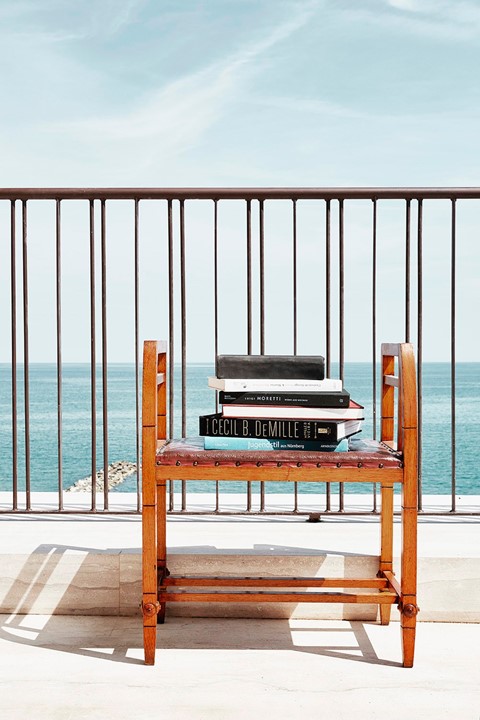
Tropic of Cancer by Henry Miller
“Henry Miller is the reason for my American passport. If I’m English-speaking, it’s because of him. My father being fluent in seven languages, I never had books in French translation. I don’t remember how I knew that Tropic of Cancer was about sex, ten years old as I was then – I decrypted it. Reading in English became the way to discover the secrets of sex, love, pleasure. I left for the States in my twenties and never came back…” – Michèle Lamy
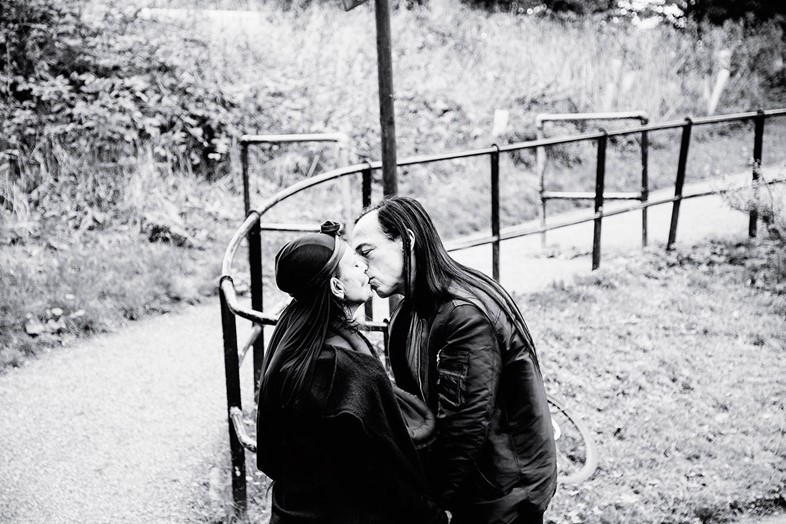
As Consciousness is Harnessed to Flesh: Journals & Notebooks, 1964-1980 by Susan Sontag
“Susan Sontag has accompanied me all these years. She wrote about everything that made up our life – conflicts; Aids and illness; human rights; art and culture – with brio and controversy. I chose these fragments of her Journal because it’s so great to be able to peek inside her head, to guess and feel and belong.” – Michèle Lamy
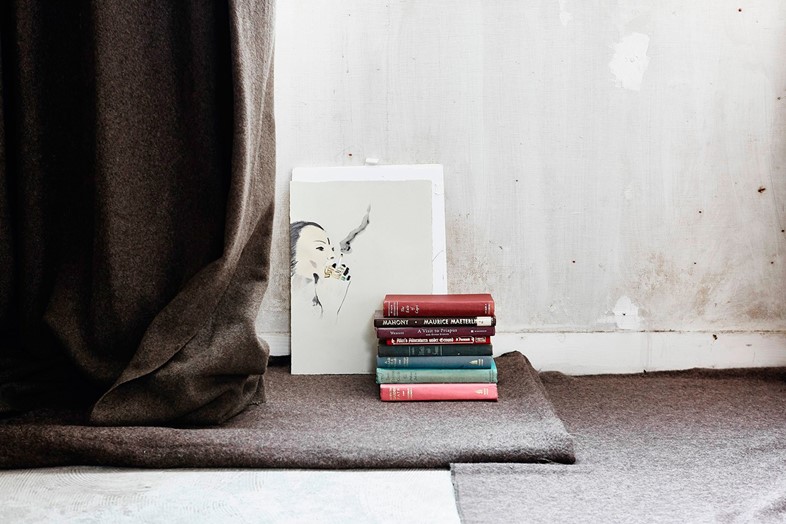
Interview With a Cannibal by Günter Stampf
“This real email exchange is about the eternal human condition of trying to make a connection, taken to a hallucinatory, operatic level. There’s something almost heroic in defining and committing to a life decision that will be transcendent and final. Lurid and biblical at the same time.” – Rick Owens

Sleep by Langston Hughes
“I was thrilled this spring to get a masterpiece write up (in AnOther) on my now legendary adventure at Les Deux Cafés in Los Angeles, with the oh-so-clever Chris Wallace’s story and even more, the fantastic work of my ‘adore’ artist, Konstantin Kakanias. So when Jefferson Hack asked me to co-host AnOther’s 15th anniversary party recently, I only wondered for a minute what I could do to celebrate with all my love and, I hoped, entertaining ability. I sang, King Kong Blues – never published but made famous by Marianne Oswald (singer) and Boris Vian (music) in the 1940s in Paris. This song, based on the poem King Kong Blues, which Langston Hughes wrote on a napkin in a Saint-Germain-des-prés nightclub, was introduced to me by my dearest friend Hélène Hazera – who always knows what everybody else does not – and who thought that having the same smoking voice as Marianne Oswald, I should be able to do it justice. At Les Deux, Bobby Woods rearranged the music and one night, after Joni Mitchell and others, it was late enough for me to jump in with the musicians and close the night, ‘in a state of Hypnotise’, as the poem goes. This poem was my introduction to Langston Hughes. I then devoured all of Hughes’ poems – we put music to them and I even sang a few other ones. Here I chose this ‘little’ one, because when the ‘lips and the body are done’ all the tenderness of the world comes over me as an avalanche made with so few words. A genius!” – Michèle Lamy
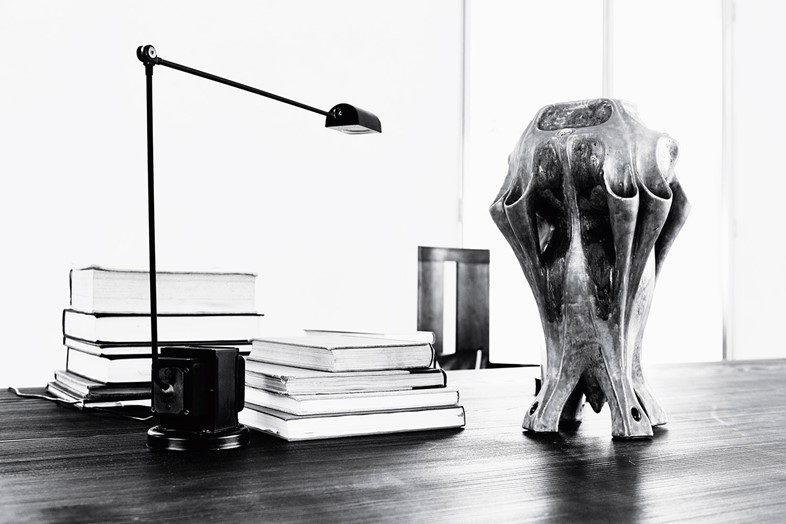
Alice in Wonderland by Lewis Carroll
“I had the opportunity to take Gilles Deleuze’s philosophy classes, the only year he was in Lyon. His classes then were about Lewis Carroll’s Alice in Wonderland and Behind the Looking Glass, from which he wrote his book, Logique du sens. I had read the books so many times and seen the movie several times, too. In this extract, Alice’s cards are so funny, fighting for nothing, but there’s danger: ‘Off with their head!’ says the Queen... I love playing cards – playing Solitaire helps me think. I like Tarot cards with their witchcraft signs; the cards are so flat but they drag me into the magic geometry of the world.... Alchemy!” – Michèle Lamy

Wesendonck Lieder by Mathilde Wesendonck
“ Sombre, introspective and intimate prayers. I was raised on Wagner (who set these poems to music), which was a weird outlet for my very repressed family. I used Schmerzen and Traume for my A/W13 womenswear show. They are austere, elegant yet still theatrical.” – Rick Owens

Salomé by Oscar Wilde
“Salomé’s descriptions of what she loves about John the Baptist are so rhapsodic and transportive, I wish I could wallow in those kinds of emotions myself. I love the idea of completely collapsing into sensuality, but I’m just too pragmatic. Another story of a transcendent and final life decision.” – Rick Owens
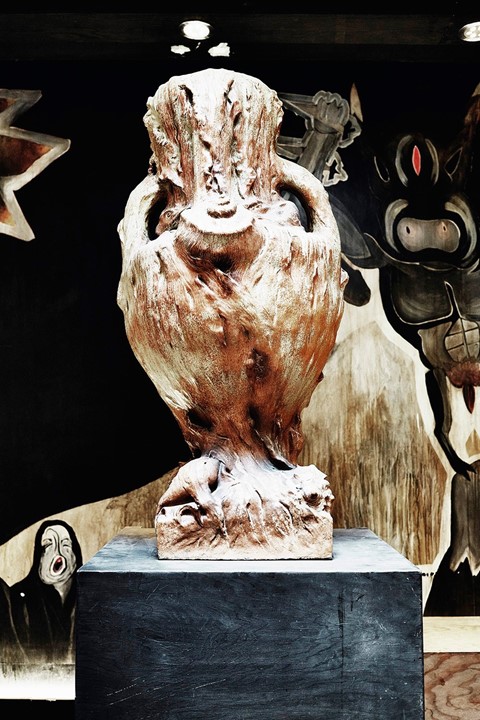
The Torture Garden by Octave Mirbeau
“A murky Art Nouveau novel that is part morality critique and part toilet. A heavily perfumed tale about high aspirations and base appetites – with long, delicate explanations of both.” – Rick Owens
A version of this article was originally published in AnOther Magazine A/W16.
